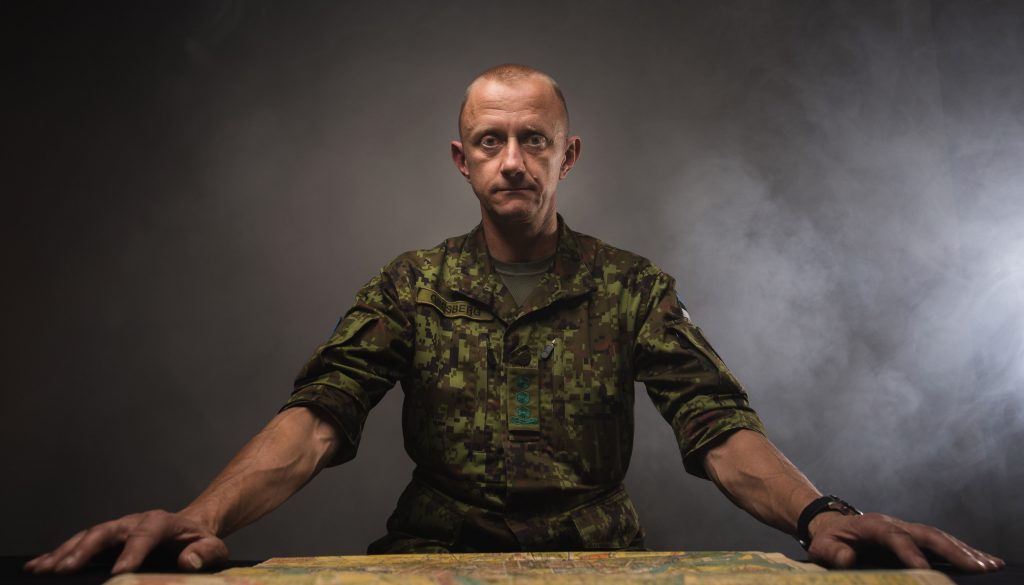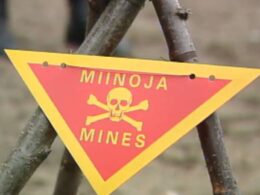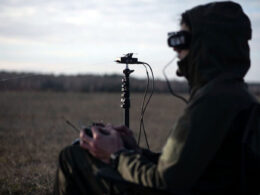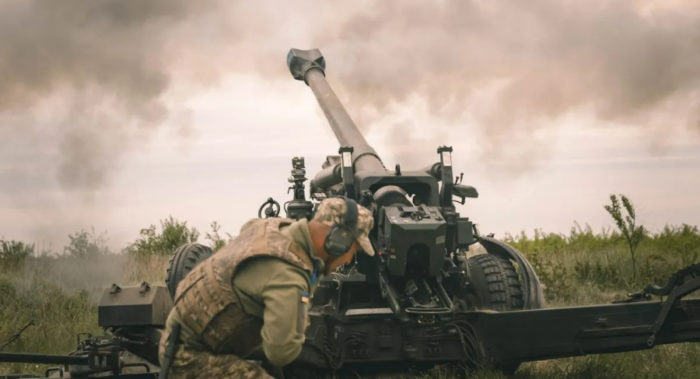Estonia’s military intelligence agency tipped off Ukrainian counterparts about an attempted Russian airborne assault on Kyiv’s Hostomel airport in the early hours of the invasion, potentially helping thwart a decisive blow to Ukraine's defenses, it follows from an interview with outgoing Estonian military intelligence chief Margo Grosberg published by the independent journalism outlets Delfi (Estonian) and VSquare (English).
On 24 February 2022, hours after Russia launched its invasion, 18 Russian IL-76 military transport planes loaded with elite airborne troops took off from Pskov heading for Hostomel airport. Their goal was reportedly to quickly capture Kyiv.
Luckily, the assault failed. Ukraine received advance warning from Estonia's military intelligence before the Russian troops took off, Delfi reports, referring to two different sources.
“I cannot confirm or deny this,” Grosberg said when asked if Estonian intelligence had provided advance warning to Ukraine about the airborne operation.
Grosberg stated, however, that “the Hostomel battle that day might well have been the most crucial battle in the whole course of the Ukrainian war so far.” He added, "If the ILs would have been able to land at Hostomel, we might be today in a totally different situation than what we have.”
Thanks partly to Ukrainian artillery bombardments that prevented the Russian planes from landing, the airborne assault failed.
Grosberg called Russia's initial war plans “clearly wrong,” noting they were based on flawed assumptions likely filtered to please leadership.
The intelligence chief said his agency detected worrying signs of Russia's invasion plans back in spring 2021, when military units were strangely relocated near Ukraine's border. Grosberg said that by September 2021, it became clear Russia would attack, though the start date remained uncertain.
Sluggish West bears responsibility for drawn-out war
On the war’s duration, Grosberg said it hinges on whether Western sanctions hold and are forcefully implemented. He blamed the “collective West’s” plodding military aid decisions for prolonging the conflict:
“Depends if the sanctions will hold and how well we can implement them. It largely depends how well we as the collective west can endure and how well we recognize that it is not just a piece of land for what Ukraine is fighting but it is the same values that we respect and protect. As long as we understand this, the situation is satisfactory – far from good but satisfactory,” he says.
“Now, 550-plus days into the war, we have agreed to supply Ukraine with weapons and equipment that Zelensky asked on day one. If it would have been granted right then...the situation could be much different.”
While new Western weapons will assist Ukraine, Grosberg cautioned that neither F16s or ATACMS are a “silver bullet” that will decide the outcome, as Russia adapts its defenses.
Regarding the specter of Russian tactical nuclear weapons, Grosberg dismissed notions of “red lines,” arguing: “As the West didn’t have any red lines in the Syrian war, also Putin doesn’t have any specific red lines in Ukraine.” He assessed the nuclear threat as “not significantly high" and says that Russia wouldn’t maintain any plausible deniability if they opted to use a tactical nuclear weapon.
Grosberg believes that the balance of forces is largely equal and that the fight is now not over territory, but about which side can force their will on the other. And on constantly keeping pressure that can eventually cause the other side to break. He gives an example of how Ukraine was able through constant pressure to cause panic among the Russians last fall near Kharkiv, which led to the rapid collapse of Russia's front there and rapid deoccupation of a huge region.
Editor's note: this article initially stated that Grosberg confirmed that Estonian intelligence indeed tipped off Ukraine. In fact, this was reported by Delfi, quoting two of its sources, and Grosberg did not confirm or deny this. The text and headline have been changed respectively.
Read more about how Ukraine's capital Kyiv was saved early in Russia's February 2022 invasion:
- Created in three days, Ukraine’s territorial defense ruined Russian plans to capture Kyiv
- Battle of Kyiv: tactics and tricks that saved Ukrainian capital
Related:
- “We do this not only in Ukraine’s interests but also in our own,” Estonia Amb to Ukraine
- Estonia to introduce legal blueprint for handing Ukraine seized Russian assets – Bloomberg





